
Vancouver Island's Leading Newspaper Since 1858
NEWSROOM NOSTALGIA: VICTORIA, BRITISH COLUMBIA, 1968-1973
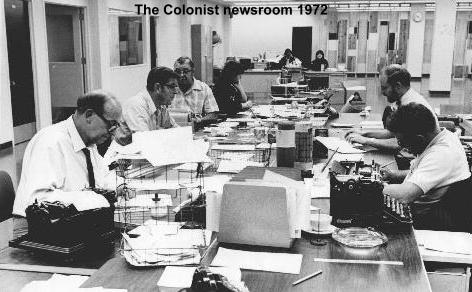
THE COLONIST HAD JUST MOVED into an ultra-modern new building on Douglas Street and the newsroom, above, was enormous, much bigger than the one in the old building. The editorial staff was not large, so it looked a bit lost in the huge space. Someone joked that everyone would need roller skates to move around the room. Above is the main newsdesk, with managing editor Fred Barnes in the foreground on the left. The deskmen on the other side of him are Art Westdorp, George Inglis and Judy Jenkins, Island editor. In the right foreground is deskman Ray Kerr. Just behind him is me, city editor Hugh Doherty. And in the centre, way at the back of the room, looking at the camera, is family department reporter Kathryn Hazel. Beside her is Leslie Drew, family editor.
Where John Diefenbaker became 'John D'
(Copy editor, 1968-69; city editor, 1969-73)
I began work at the Colonist in the late summer of 1968 as a copy editor on the "rim," which was the main newsdesk through which news stories flowed for editing and placement, and page layouts were designed.
One part of the job was writing the headings for stories, and the Colonist had its own idiosyncrasies about these headings. One of the most unusual concerned former prime minister John Diefenbaker. He had long since become popularly known as "Dief," but not at the Colonist where the nickname was seriously regarded by the top brass as somehow demeaning. So "Dief" was on the list of forbidden words at the paper, never to appear anywhere in its columns.
This provided headline writers like me with a peculiar problem. "Dief" fit nicely into any number of single-column headings, but "Diefenbaker" was far too long. The paper's solution was to invent a new headline nickname for the politician. It was "John D" without a period after the "D." Being a newcomer from the East, I almost laughed out loud when I was first told about this, but it was serious business at the Colonist and had been going on for so long that both readers and newspaper staff had not only become used to "John D," they appeared to be fond of it.
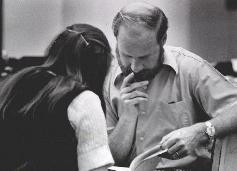
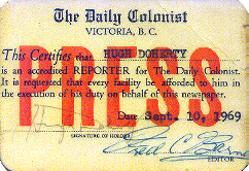
CITY DESK CONFERENCE: Left, that's reporter Nancy Brown and me discussing a news story, about 1971. On the right, my 1969 Colonist press pass, signed by managing editor Fred Barnes.
Of course, all newspapers have their quirks, and "John D" was one of the Colonist's. Another was that the paper published six mornings a week, Tuesday to Sunday, but never on Monday.
And yet another quirky thing was an annual Christmastime series of articles for the paper's 500 Fund, which raised money for needy people. Each article read like an anonymous profile of some local person or family deserving of financial help, drawn from the files of Victoria social agencies. The Fund was quite successful and did a great deal of good. But at least some of the articles were a kind of fiction. They were not about actual cases, but based on composites of "examples" from the agencies, and the reporters' imaginations.
The Colonist was owned at this time by FP Publications, which started as a partnership between Victor Sifton of Manitoba and Max Bell of Calgary. At first, it was a small chain that included the Winnipeg Free Press, the Calgary Albertan, the Ottawa Journal and the Victoria Times. Later, FP added Vancouver's Sun Publishing, the Lethbridge Herald, Montreal Star and the Toronto Globe and Mail.
In Victoria, the Times and the Colonist were both housed in the Victoria Press building with a common production plant, press, ad department and library. Each had its own independent editorial department on opposite sides of the building, physically separated from each other. The Colonist, a morning newspaper, had a larger circulation than the afternoon Times. Its appearance and typography were distinctly different from the Times, so each paper had its own character.
A place where nearly everyone came from Somewhere Else
In the late 1960s and early 1970s, Victoria was a small city just starting to become one of the most popular havens in Canada for people from other parts of the country. They were drawn by the mild Pacific Coast climate, sandy ocean beaches and magnificent snow-covered mountain scenery.We shopped then at Woodwards and the Bay downtown, listened to Gordon Lightfoot sing and play at the gem-like Bastion Theatre, went to the first outdoor concerts by the Victoria Symphony Orhestra conducted by Laszlo Gati, picked roses at Christmas in our gardens, and fished for the salmon that seemed to be in inexhaustible schools everywhere just offshore.
These were the years of hippies and flower children, and they were everywhere in Victoria. Brilliant spring flowers and blossoms bloomed in February, as they still do. 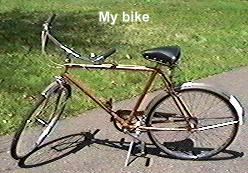 I pedalled a three-speed bike to and from work, which seemed to fit in with the local way of life. Long Beach, over on the west coast of the Island, was not yet Pacific Rim national park, and parts of it were over-run every summer by enthusiastic nudists. There was no highway to Long Beach then, only a single-lane gravel road twisting across mountain tops, most safely navigated at night when one could see the headlights of oncoming cars hidden behind the bends in the road.
I pedalled a three-speed bike to and from work, which seemed to fit in with the local way of life. Long Beach, over on the west coast of the Island, was not yet Pacific Rim national park, and parts of it were over-run every summer by enthusiastic nudists. There was no highway to Long Beach then, only a single-lane gravel road twisting across mountain tops, most safely navigated at night when one could see the headlights of oncoming cars hidden behind the bends in the road.
To our family with three small children from eastern Canada, Victoria and Vancouver Island seemed like a Disney dream come to life. It seemed like that as well for most of my colleagues at The Daily Colonist, because they, too, were nearly all from Somewhere Else. Unlike our fourth child, a daughter who was born in Victoria in 1969.
Wacky and Flying Phil finally brought down by Barrett

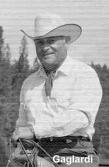
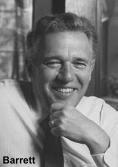
The political climate of British Columbia then was much like it still is -- vigourous, diverting and often bizarre, especially at the provincial level. So politics provided a lot of the stories for the Colonist and other B.C. newspapers. During most of the time I was at the Colonist, the right-wing Social Credit party was in power, led by W.A.C. Bennett, popularly known as "Wacky." He had been in office since 1952, holding off opposition parties, particularly left wing ones, with such slogans as "the socialist hordes are at the gates." One of his most flamboyant cohorts was highways minister Phillip Gaglardi, who came to be known as "Flying Phil" because of his fondnesss for air travel, and for his over-the-speed-limit driving habits. The biggest provincial news story of that time broke in 1972 when Dave Barrett and his New Democratic Party won the B.C. election, finally bringing the Socred machine to a temporary halt.
More on the next page: activities and people
John Hogbin's photo album
Dave Brown and the last Colonist
Comments? Click here to E-mail
This page started April 15, 2005. Last updated April. 9, 2006